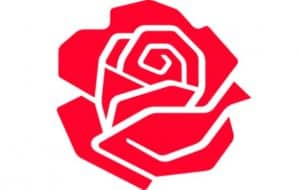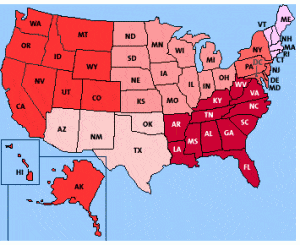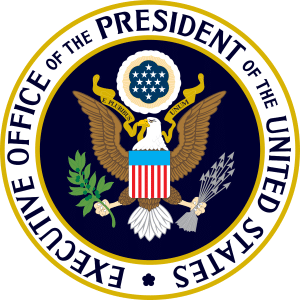It is not often I get a little sad when a book of 768 pages is nearing its end. Fortunately, I can look forward to reading Volume 2.
A Promised Land is Barack Obama’s account of his path to the job as the 44th President of the United States of America, commencing January 20, 2009, and events during the time leading up to May 2011.
The last episode in the book is the showdown with Osama bin Laden, a mission to which Barack Obama assigned a very high priority.
The American intelligence service had successfully located what they suspected was Bin Laden himself. Then US Navy Seals carried out a raid on a house in the Pakistani city of Abbottabad, found bin Laden, shot him and brought the body back to their base for final verification.
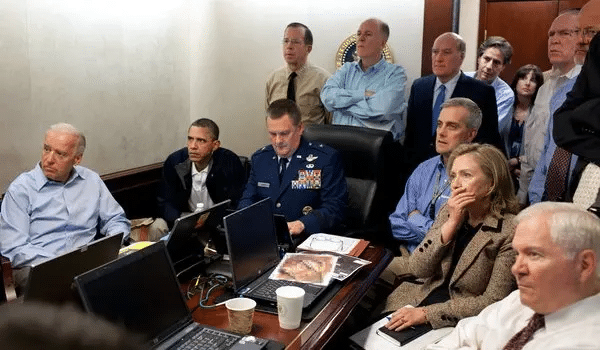
It was him.
I highlight that incident because of the apparent challenge of describing and justifying a liquidation without a trial in a foreign country. Even when it comes to the terrorist Osama bin Laden.
However, Barack Obama presents the facts and provides the rationale for why this was the right thing to do. He does not neglect the moral and ethical dilemmas that characterize much of America’s domestic and foreign policy, and it is refreshing to learn how consciously and realistically he recognizes, expresses, and relates to those challenges.
The strength of the contrast
When reading of A Promised Land, you cannot refrain from comparing the style and content with that of the 45th President, who for the last four years has performed on Twitter and in the White House. Especially the utterly surreal circus of recent months, where millions of Americans and large sections (most!) of the GOP – The Republican Party – have exhibited behaviour that suggests that the anti-democratic forces in the world’s most powerful nation are surprisingly prominent.
In that light, Barack Obama’s book is a positive reminder that there are American politicians who think and behave very differently. It is refreshing and inspiring that the country still produces people who are not entirely dominated by their egos and self-interest to the extent that it completely blocks their view and distorts their judgement. People that envisage a better life for the millions who are not born with a silver spoon in their mouth, and who recognize the role, responsibilities and obligations of the United States in the global community.
A Social Democrat
From my perspective and in the eyes of most Europeans, Barack Obama is a Social Democrat with a vision of making life better for most Americans through higher taxes, an expansion of public services and tighter regulation of the market. His political mission thus includes first and foremost the establishment of solidarity programs within education, healthcare and social security, like those we have enjoyed in the Nordic countries and most of Europe since World War II.
In Europe, some find that the Social Democratic vision has gone a little too far and believe that the public sectors have grown too big. However, only few will deny that Social Democrats are capable of running a government and that they for more than a hundred years have contributed constructively and significantly to the prosperity and welfare that we all enjoy today.
We have learned that Social Democrats are not socialists (which requires having the abolition of private property rights as a key objective). Instead, they are social liberals or liberalists (as someone in favour of liberalism), depending on your terminology. To advance real socialist ambitions, we have parties to the left of the Social Democrats. Ultimately, it is even doubtful whether they are prepared to re-test community models with collective ownership of the means of production. To the right of the Social Democrats, we have parties that would like to see the public sector reduced. Still, even they do not promote extensive privatization of vital public services such as education, healthcare and social security.
It’s different in the United States.
There, a suggestion for higher taxes to finance public services is perceived by many as socialistic heresy.
Had the fall of 2008 not been dominated by one of the worst economic crisis we had experienced since the Great Depression, it is unlikely that Barack Obama would have been able to win the presidential election. The Financial Crisis that originated in the USA demonstrated severe systemic problems with the capitalist market economy – especially in the United States. A failed, and costly war in Iraq also made Americans prepared to try something different.
The book describes these American idiosyncrasies. It explains how strong capital interests sponsor lobbying activity and media companies that perpetuate the myth that when you do not get an education, a good job and a good salary, then it is entirely your fault. When you are financially successful, then it also a result of your own actions, and you don’t owe anything to anyone.
The two great paradoxes
I have travelled and worked extensively in the United States and have family and friends all across the continent. These are lovely people, and their country is beautiful and varied. However, two issues have always amazed me.
One is US foreign policy, and the other is their lack of appetite for solidarity solutions.
The United States is a freedom-loving democracy that has had a particular penchant for allying itself with autocratic dictators who were experts in oppressing their peoples, enriching themselves, and clinging to power through undemocratic methods. How could the United States justify helping despots come to power and support them to maintain regimes that they would never accept at home? The principle of recognizing the enemy of your enemy as your friend seems primitive and short-sighted for such a sophisticated nation. It has often turned out to be exactly so (primitive!).
You will have a hard time finding someone in Europe who does not support a publicly funded healthcare system, a publicly funded education system and a social safety net. Especially in the Nordic countries, only an insignificant minority will question this way of organizing a society. Not only for altruistic reasons but also because it provides social stability and less crime, creates a better foundation for running private enterprises, and because it eliminates the worst excesses of the free markets.
The United States, one of the wealthiest and most resourceful countries in the world, has millions of citizens living in economic poverty, from which they and their children have the most incredible difficulties escaping.
How can one accept a political system that is so bad at providing for its citizens? A system that excels in generating wealth, but cannot figure out how to spread it to the benefit of everyone.
Precisely these fundamental paradoxes are discussed thoroughly in Barack Obama’s autobiography. When it is so expansive, then it is because he takes the time to explain the background for his political initiatives, the historical preludes, the positions and motives of his opponents, as well as the ideological and monetary forces that try so hard to maintain the status quo or worse.
His description of the background and difficulties surrounding the preparation and approval of The Affordable Care Act (Obamacare) is fascinating. It explains why even Democrats had a hard time supporting what was called The Public Option, which could be the precursor to a public health care system. Historical developments in the United States have made that option close to impossible even though it means that Americans have to pay far more for their healthcare than we do in Europe and Canada.
For what we do not admire Americans
In Europe, we have a lot for which to thank the Americans.
Our appetite for American culture (in a broad sense) has been enormous in my lifetime. We listen to and play American music, watch American movies, are big consumers of American technology and look with envious eyes at their ability to create fast-growing companies.
Funnily enough, however, we have not been inspired much by American political practices. I do not recall any European politician suggesting that we should arm the people in the same way as is the situation in the United States. In Europe, no one is calling for radical privatization of education, social services and health care, so it could work more like it does in the US.
The job of being the US President
The President of the United States is often described as the most powerful person in the world. After reading A Promised Land, you may wonder what that means.
The book describes in detail the many formal and trivial obligations that the job entails. And how to see to them at the same time as you need to fix urgent and critical issues that are not of your doing, but still require swift solutions that are well thought out. All the while, you must find time to advance your own political agenda and implement reforms that can find legislative majorities in Congress (the Senate and the House of Representatives). It all takes place while in the full public spotlight.
Through the years we have seen very different American presidents motivated by vastly different ideas seeking the job as head of the world’s most resourceful nation. Barack Obama credibly illustrates that his ambition was driven by a Social Democratic vision that was to make life better for most Americans.
He was also very well aware of the risks that the job entailed for his family and himself. The risk was not only related to safety but also included the impact of never having time off, of having a servant on every finger, of being isolated from the outside world, of being the target of unwarranted and hateful criticism and the object of adoring admiration. In particular, he and his wife, Michelle, were sensitive to how it all might affect their two small girls, Malia and Sasha.
The Obama family got themselves organized and seemed to have come out of the two presidential terms unscathed. With great humour, Barack Obama continuously explains the many benefits that, after all, are associated with “living upstairs from the shop” and not having to think about commuting, shopping, cooking, laundry and cleaning.
Entertaining lessons in contemporary history
The book does not touch upon political episodes that you as a reasonably well-informed newspaper reader have not heard of before. Still, it opens the door to the inner workings of the American political systems and offers layers of relevant details and background information on top. It is an elaboration of contemporary historical events, the outcome of which has had an impact on millions of Americans but also on billions of people worldwide.
I remember Barack Obama as an excellent speaker, and after reading A Promised Land, I must also give him top marks for written disposition, style, and dramaturgy. It is a very well-written book, and for the English-savvy person, it is easily read in its original language.
If you have read my other book reviews, you will know that I have a weakness for books that document how reality always surpasses fiction when it comes to suspense, relevance, and drama. A Promised Land supports my claim and kept me spellbound for hours.
It is not often I get a little sad when a book of 768 pages is nearing its end. Fortunately, I can look forward to reading Volume 2.
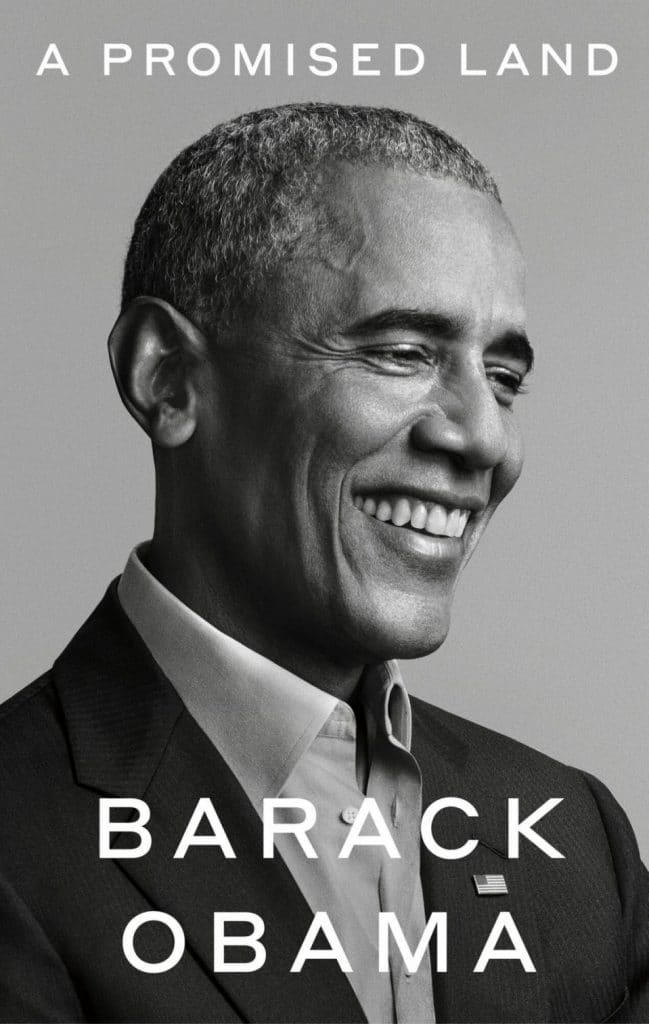
Title: A Promised Land
Author: Barack Obama
Publication date: November 17, 2020
Number of pages: 768
